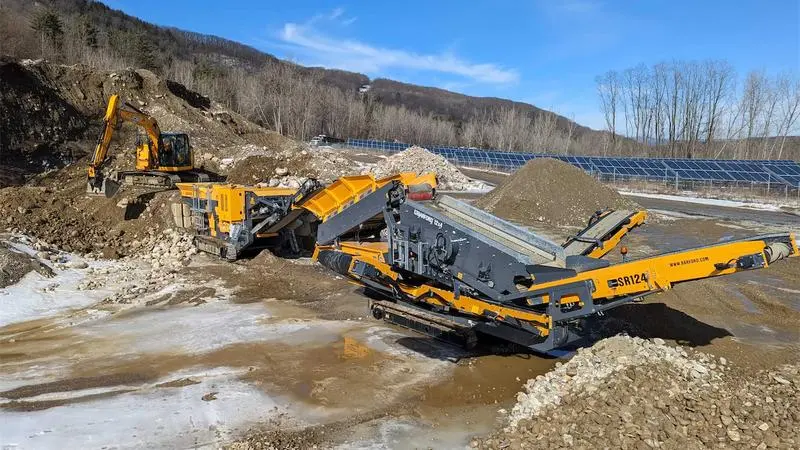When it comes to construction, mining, or aggregate production, having the right equipment can make or break your operation. At the heart of many projects is the rock crusher, a machine built to transform massive, raw materials into smaller, usable aggregates. Choosing the best crusher isn’t just about power — it’s about finding the perfect match between your material type, production goals, and work environment. This tutorial examines the crucial elements to take into account when choosing the best rock crusher for your particular material requirements. For contractors working across multiple job sites, a portable rock crusher offers the perfect combination of mobility and power, allowing them to process materials directly on location without costly transportation delays.
Knowing What A Rock Crusher Is Used For
Large rocks can be broken up into smaller pieces for use as building materials, road bases, or industrial purposes by using a rock crusher machine. But not all crushers are created equal. Each type has its own method of breaking down material, which directly affects the final product’s shape, size, and consistency.
Before choosing a crusher, you must clearly understand what material you’re processing. Hard, abrasive rocks like granite or basalt require robust equipment capable of withstanding high pressure. At the same time, softer materials like limestone or sandstone can be crushed more efficiently with impact-based machines.
Step 1: Know Your Material Properties
The first step in choosing the best rock crusher is to analyze the properties of your raw material. This includes hardness, abrasiveness, density, and moisture content.
- For materials that are hard and abrasive, jaw crushers are perfect. They use compressive force to crush rock between two plates, making them suitable for primary crushing.
- Cone crushers provide precise control and are used for secondary or tertiary crushing of medium to hard materials.
- Impact crushers use high-speed impact energy and are best for softer materials or for shaping aggregates.
- VSI (Vertical Shaft Impact) crushers produce fine, uniform materials perfect for asphalt and concrete applications.
Better performance, reduced wear, and cheaper maintenance are guaranteed when the machine is matched to the type of rock.
Step 2: Determine Your Desired Output Size
Your end goal determines which crusher setup is best. If you need large chunks of material for road foundations, a jaw crusher might suffice. However, if your goal is to produce finely crushed stone for asphalt or ready-mix concrete, a cone or impact crusher may be the better option.
The ability to adjust output size through closed-side settings or variable rotor speeds gives operators flexibility and helps meet specific project requirements.
Step 3: Evaluate Production Capacity And Efficiency
Capacity is one of the most critical considerations when selecting a crusher. Each model is rated for a specific throughput measured in tons per hour. Overloading a crusher reduces efficiency and shortens equipment life.
For large-scale operations, stationary crushers offer high-capacity performance and long-term durability. Smaller or temporary projects, however, may benefit from portable or tracked crushers that can easily move between sites. For flexibility without ownership costs, many contractors opt for rock crusher rental services, which allow access to advanced equipment for short-term use.
Step 4: Consider Operational Environment And Maintenance
The conditions of your worksite — including mobility, accessibility, and climate — play a major role in choosing the right crusher. Remote or rough terrains may require mobile crushers, while fixed plants are better suited for consistent production in centralized locations.
Maintenance should also be a top priority. Look for machines with features such as hydraulic adjustment systems, automatic lubrication, and easy access to components. These reduce downtime and keep operations running smoothly.
Step 5: Factor In Efficiency And Sustainability
Modern crushing technology goes beyond raw power. Modern machines use intelligent systems that track performance, maximize energy efficiency, and reduce waste. Many models are built with fuel-efficient engines and dust suppression systems, aligning with sustainability goals while maintaining productivity.
Final Thoughts
Choosing the best rock crusher involves more than just picking a powerful machine — it’s about precision, planning, and performance. By considering your material type, production capacity, site conditions, and maintenance requirements, you can select equipment that delivers consistent results and long-term value. Whether you’re processing hard granite or recycled concrete, the right crusher will help you break down challenges efficiently — one rock at a time.

